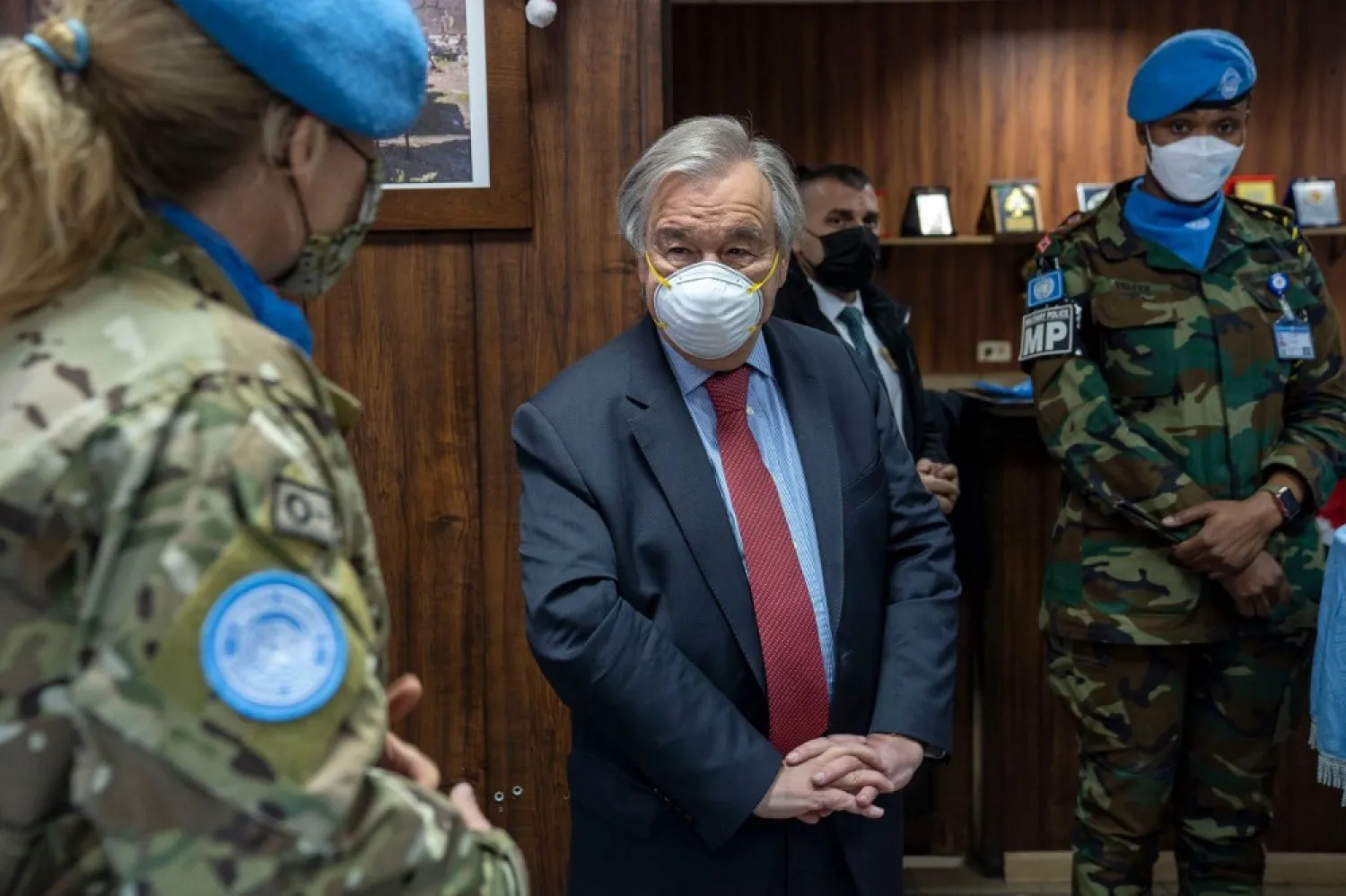The United Nations Interim Force in Lebanon (UNIFIL) demanded that the perpetrators behind Wednesday's attack on its Irish contingent be put on trial.
This was the first time since 2006 that the peacekeeping force, deployed in southern Lebanon, uses such a firm tone in dealing with attacks its troops occasionally come under as they carry out their duties.
In a statement, UNIFIL said Wednesday's incident was "unacceptable" and a "violation" of the agreement signed by Lebanon.
The perpetrators must be brought to justice, it urged, amid speculation that the attack was aimed at delivering a political message from Hezbollah towards the international community.
The attack had notably taken place as UN Secretary-General Antonio Guterres was concluding a four-day trip to Lebanon. Guterres had toured the UNIFIL headquarters during his trip.
Guterres had angered the Iran-backed party when he suggested during an exclusive interview with Asharq Al-Awsat that Hezbollah be transformed into a political party like others in Lebanon.
Wednesday's incident unfolded when some youths in the southern town of Shakra protested against UNIFIL members taking photos on their phone of some locations in the town, said witnesses.
The UNIFIL patrol was driving in one of the town's neighborhoods without a Lebanese army escort.
Residents surrounded the patrol and attacked its vehicles after one of the UN troops was seen taking the photos.
Field sources said that as the patrol attempted to leave the area, it struck two youths and two vehicles, forcing the residents to again surround the troops and prevent them from leaving. They then attacked the patrol with sticks and stones before Lebanese soldiers arrived at the scene and evacuated the UN forces.
Military sources told Asharq Al-Awsat that contacts were made at the highest levels to contain the incident and prevent similar ones from happening again in the future.
This is not the first time that such attacks take place. They often happen when UNIFIL patrols veer off their normal patrol paths and enter neighborhoods, leading locals to confront them.
This is the first time, however, that UNIFIL uses firm rhetoric in addressing these attacks, describing Wednesday's incident as "dangerous".
Deputy Director of UNIFIL's Media Office Candice Ardell told the National News Agency that depriving the UN troops of freedom of movement and attacking those who serve peace is unacceptable.
She referred to remarks by Guterres a day earlier in which he stressed that UNIFIL enjoys complete freedom to access areas that fall within its areas of operations in line with the agreement between it and the Lebanese government and UN Security Council resolution 1701.
UNIFIL and Lebanese authorities are probing Wednesday's attack.
The attack took place amid growing calls for the implementation of international resolutions related to Lebanon, including 1559 that demands limiting the possession of arms in the country to the state.
Residents of the South have also reported that UNIFIL has recently increased its patrols in the region after its movements were restricted to specific streets and areas.
The Foreign Ministry said Prime Minister Najib Mikati had contacted Foreign Minister Abdullah Bou Habib to discuss the incident.
In a statement, it said it regretted the attack and was awaiting the results of the probe. It stressed that it rejects any form of attack against UNIFIL troops, reiterating Lebanon's commitment to international resolutions, especially 1701.
Political researcher Ali al-Amin said Wednesday's attack was a "strong message" from Hezbollah to the international forces amid mounting calls for the implementation of international resolutions and American pressure to amend UNIFIL's mandate and expand its duties.
UNIFIL's mandate is renewed in August of every year.
Amin said Hezbollah is demanding that the situation in the South remain as it is, meaning the international troops' duties should be limited to what they are right now and not decided by international resolutions.
In other words, the party opposes amending UNIFIL's mission and expanding its mission.
Amin, a critic of Hezbollah, added that such a message does not come from a position of power by the party, but rather of weakness because it is "confused" over the regional scene and talks of a settlement in Syria.
Moreover, he remarked that the party wanted to create a crisis after Wednesday's attack instead of avoiding its circulation in the media "because it wants its message to reach the UN and international community" and inform them that UNIFIL operates in Hezbollah's area of operations.
Amin noted, however, that the incident was criticized on social media because the residents of the South believe that the international troops bring stability to their region.
The UNIFIL deployment assures the locals against any potential war and their presence in the South is the last remaining international cover provided to Lebanon amid mounting crises it is enduring, he explained.









